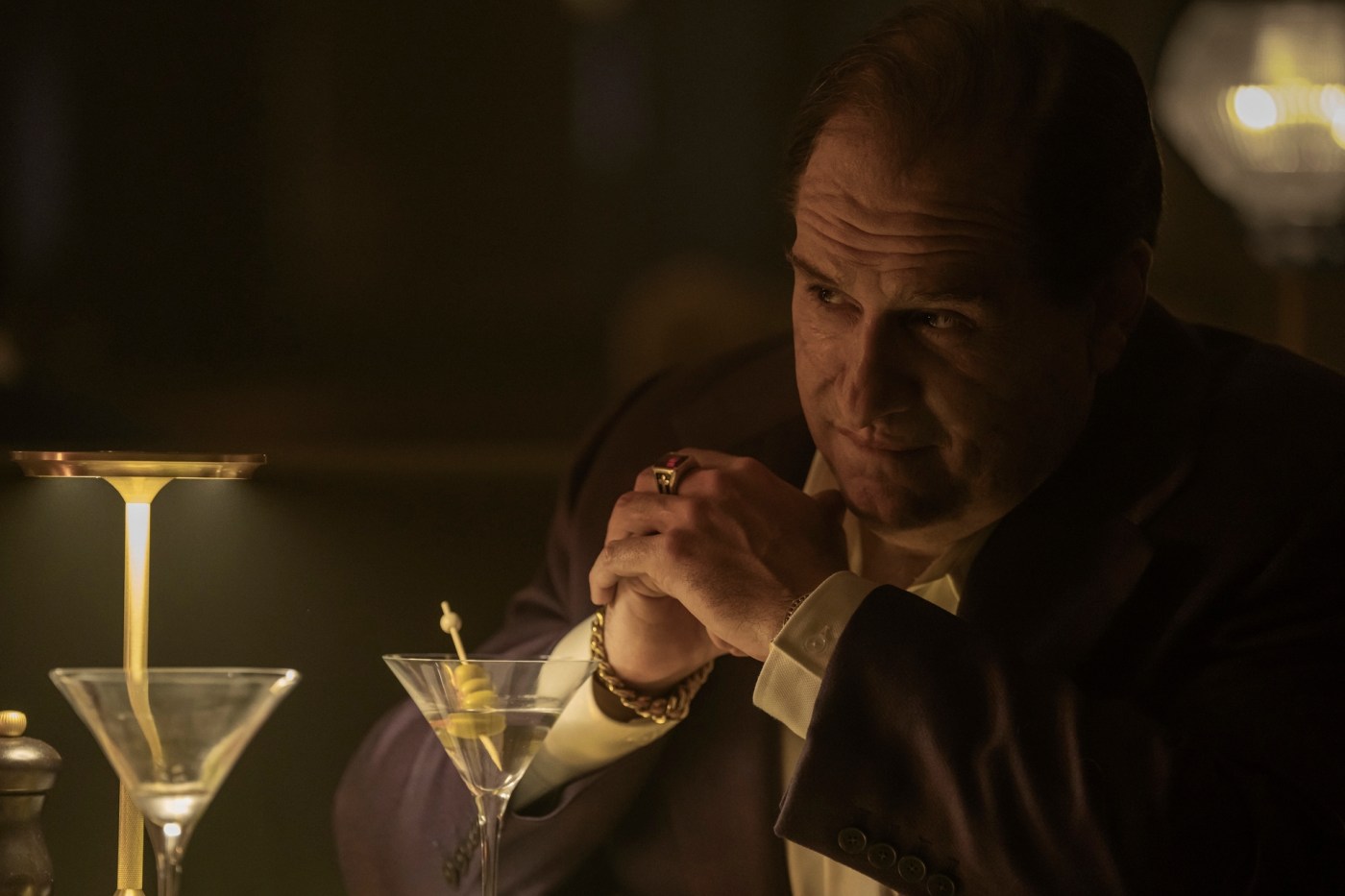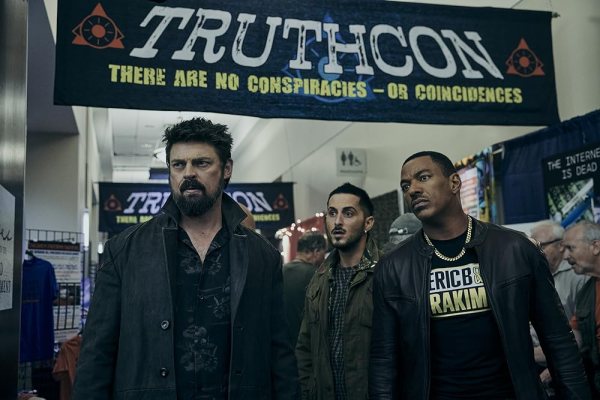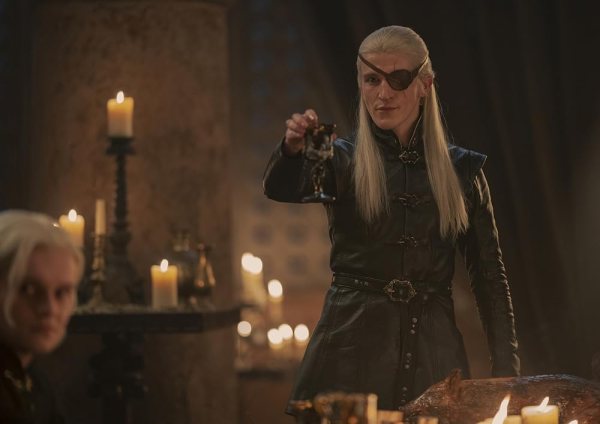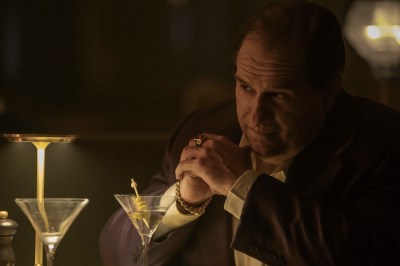Since 2008’s Iron Man overtook the entertainment world, superhero blockbusters and TV hits have taken over theaters and living rooms alike. But a new trend for these movies and shows has cropped up in 2024, with mixed results: focusing not on superheroes but on their foes.
On one hand, there was Joker: Folie à Deux, a sequel to the hit 2019 movie which nevertheless disappointed by only making $50 million at the domestic box office earlier this fall. On the flip side, there was HBO’s The Penguin, which will air its season finale tomorrow. With 10.4 million viewers 11 days after its series premiere, The Penguin has been a wild success, making it the most popular show on HBO behind The Last of Us and House of the Dragon.
What might explain this difference in popularity? In short, only one of these stories offers a genuinely compelling villain.
The Penguin takes place just a week after the events of The Batman, the excellent 2022 spin on the caped crusader. After the Riddler flooded Gotham and killed Carmine Falcone, the city’s most infamous mob boss, the criminal underworld devolved into chaos. The Penguin follows Oz Cobb, a mid-level mobster played by Colin Farrell, as he works his way to the top of Gotham’s criminal food chain.
“You know what I like most about you Oz? You are who you are, and you couldn’t change if you tried,” Alberto Falcone, the heir to the Falcone crime family, says to Oz in the show’s opening scene. “Ain’t that what makes me fun?” Oz quips.
It is, indeed. Colin Farrell brings the wisecracking gangster to life, donning copious prosthetics and a thick New York accent. There’s something enticing about watching Oz accumulate power, doling out a warped version of justice against people even worse than he is. But what makes him most captivating is that he’s a bundle of contradictions, complex in a way that’s rare for a television character. Oz is ambitious but insecure, loyal but self-centered, smart but impulsive, caring toward some but sadistic toward others. In that first scene, Oz was strategizing, working his way into Alberto’s plan to release a new drug into the streets of Gotham. By the end of it, he whips out a pistol and puts five bullets in Alberto’s chest, all for calling Oz “pathetic.”
Smart, but impulsive. The paradoxes in Oz’s character make him infinitely watchable. He has humanity, in a twisted sort of way.
The show thrives on moments like this. The drama comes not just from the narrative but from watching the push and pull between Oz and his self-destructive instincts. And he’s easy to root for. We witness enough glimmers of mercy, compassion, and even love to see him as more than simply a monster, albeit one who has walked a long way down a dark path. He acts as a father figure to a boy named Victor, taking him under his wing. He works to protect his mother. It’s hard not to feel sympathy for Oz—and at times even want him to succeed.
But like with Tony Soprano or Henry Hill, there’s a tension between Oz’s destructive behavior and our sympathies for him. Over seven episodes so far this season, The Penguin is quick to remind viewers that Oz is not the product of an evil world—he is genuinely evil himself. The show never lets us forget that Oz has agency, nor does it excuse his shocking acts of brutality. Oz is, and will always be, the Penguin. A bad guy.
And like any great story about a villain, he makes us a little uncomfortable. Sure, we are not murderers like the Penguin, but do we too crave power? Respect? Vindication? He tells a story about a gangster he remembers from his childhood whom he claims genuinely helped people. When he died, the town threw a parade in his honor. “Can you imagine? To be remembered like that?” he asks longingly. “Revered?”
Can we imagine? It’s a human question that makes shows like this so dangerously fun to watch.
Joker: Folie à Deux, on the other hand, is no fun at all. Folie picks up with Arthur Fleck awaiting his trial while in Arkham Asylum after he, dressed as his alter-ego, Joker, went on a killing spree across Gotham in the first film. Arthur describes himself as a “mentally ill loner,” fitting a profile closer to a serial killer than a criminal mastermind.
As dark as the film is, its lead character often feels cartoonish in his simplicity. In the first movie, Arthur is the victim of a series of outlandishly cruel people until he eventually cracks, painting his face in the now-classic Joker makeup and murdering the people who wronged him. The second movie follows a similar pattern, despite a different, less explosive ending. Unlike Oz, Arthur does not exercise agency—he only endures what he’s put through until he reaches his breaking point. It makes for a viscerally unpleasant watching experience, making the bleakest episode of The Penguin look like an episode of Adam West’s 1960s Batman.
And most of all, despite both Joker films’ faux-profundity, they ask nothing of their audience. There is no nuance to explore, no complexity. The humanity that came from Oz’s contradictions is missing—instead, the film blames “society” for the creation of its villain, not the villain himself. Joker is the product of a comically evil world, and Joker wants your pity, horror, and anger at Arthur’s situation, but nothing deeper than that. Watching Arthur feels similar to being a distant observer of a train wreck. And, pretty quickly, you’d rather look away.
The Penguin isn’t perfect—it’s a supervillain show, after all. The plot is at times predictable, its pacing is occasionally stilted, and it’s probably two episodes longer than it needed to be. The Sopranos, it is not. But if Gotham’s rogues are going to keep running rampant and Hollywood is going to keep telling stories without a hero, I’d much rather be spending time with Oz Cobb than Arthur Fleck.







Please note that we at The Dispatch hold ourselves, our work, and our commenters to a higher standard than other places on the internet. We welcome comments that foster genuine debate or discussion—including comments critical of us or our work—but responses that include ad hominem attacks on fellow Dispatch members or are intended to stoke fear and anger may be moderated.
With your membership, you only have the ability to comment on The Morning Dispatch articles. Consider upgrading to join the conversation everywhere.